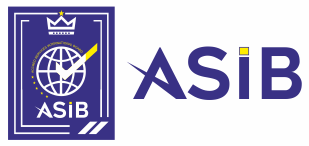ISO/IEC 17024 Accreditation
- Home
- ISO/IEC 17024
ISO/IEC 17024 Accreditation
Conformity assessment — General requirements for bodies operating certification of persons
ISO/IEC 17024 establishes principles and requirements for certification bodies (CBs) that certify individuals against specific competencies, skills, or knowledge, such as professional certifications in IT, welding, or healthcare. The standard ensures that certification schemes are fair, valid, reliable, and impartial, promoting global recognition of certified persons and supporting workforce development, regulatory compliance, and risk management.
The standard applies to CBs operating certification schemes for persons, covering the development, maintenance, and operation of these schemes. It includes requirements for scheme design, examination development, certification processes, and surveillance but excludes certification of organizations or products (covered by standards like ISO/IEC 17065). It emphasizes impartiality and competence without specifying the content of certification schemes.
Anyone who relies on professional certifications. This includes employers, who can be confident that the individuals they hire have the necessary skills and knowledge to perform their job effectively. It also benefits consumers, who can trust that the products and services they receive are of high quality.
Benefits of ISO/IEC 17024 Accreditation
The most important benefit of ISO/IEC 17024 accreditation is to the individuals themselves. By holding a certification from an accredited organization, they can enhance their credibility, competitiveness, and marketability in their field.
- Global Recognition and Enhanced Credibility: Accreditation provides a worldwide benchmark for quality, making certifications trusted by employers, regulators, and international bodies, which opens doors to new markets and opportunities for certified individuals.
- Improved Competence and Quality Assurance: It verifies that certification schemes meet rigorous standards for validity, fairness, and ongoing development, leading to higher-quality programs that better demonstrate individuals' true abilities and reduce risks of unqualified professionals.
- Career Advancement for Certified Persons: For individuals, holding an ISO/IEC 17024-accredited certification validates expertise, boosts professional standing, and serves as official proof recognized by clients, courts, and authorities, facilitating job promotions, higher salaries, and global mobility.
- Operational Efficiencies and Risk Management: Certification bodies gain streamlined processes, stronger internal controls, and better risk mitigation, while reducing costs through time savings in accreditation and enhanced customer satisfaction via clearer scopes and impartial practices.
- Stakeholder Confidence and Market Differentiation: It fosters trust among employers and clients by ensuring impartiality and ethical operations, helping organizations differentiate in competitive sectors like credentialing and personnel assessment, ultimately driving economic growth.
Management Systems
ASIB Accreditation on Management Systems



